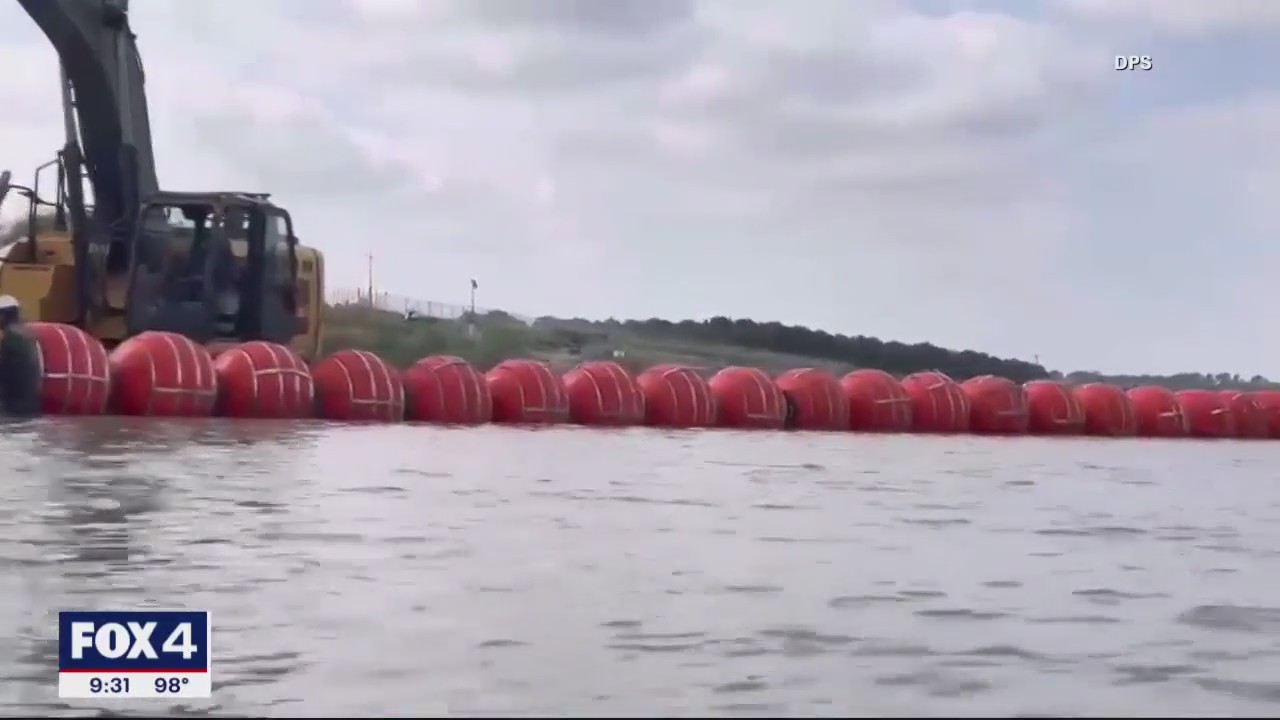Mexico recovers 2 bodies from the Rio Grande, one found near a floating barrier that Texas installed

Mexico recovers 2 bodies from the Rio Grande
Mexico’s Foreign Relations Department said the country had warned about the risks posed by the bright orange, wrecking ball-sized buoys on the Rio Grande.
MEXICO CITY (AP) — Mexican authorities are trying to identify two bodies found in the Rio Grande this week, including one that was spotted along the floating barrier that Texas Gov. Greg Abbott had installed recently in the Rio Grande, across from Eagle Pass, Texas.
Mexico’s Foreign Relations Department reported for the first time Wednesday that a body had been found along the floating barrier. The Coahuila state prosecutor’s office later told local media outlets that the two bodies were recovered and that the process of identification was underway.
The Texas Department of Public Safety said in a statement Thursday that it had received a report Wednesday of "a possible drowning victim floating upstream from the marine barrier and notified (U.S. Customs and Border Protection) and the Mexican Consulate." The agency said that later Wednesday, a second body was found at the marine barrier.
"Preliminary information suggests this individual drowned upstream from the marine barrier and floated into the buoys," Steve McCraw, the DPS director said. "There are personnel posted at the marine barrier at all times in case any migrants try to cross."
READ MORE: Justice Department tells Texas that floating barrier on Rio Grande raises humanitarian concerns
Abbott’s office and U.S. Customs and Border Protection officials did not immediately respond to a request for comment.
Mexico’s Foreign Relations Department initially said one body was found along the barrier, then hours later said a second body was found about 3 miles upriver, away from the area of the buoys. The cause of death is unknown in both cases.
Many had warned about the danger of the barrier, designed to make it more difficult for migrants to climb over or swim under.
Mexico had warned about the risks posed by the bright orange, wrecking ball-sized buoys on the Rio Grande. The Foreign Relations Department also claimed the barrier violates treaties regarding the use of the river and Mexico’s sovereignty.
"We made clear our concern about the impact on migrants’ safety and human rights that these state policies would have," the department said in a statement.
Mexico also said it was officials from the Texas Department of Public Safety that initially notified Mexico’s Consulate in Eagle Pass Tuesday about a body.
The barrier was installed in July and stretches roughly the length of three soccer fields. It is designed to make it more difficult for migrants to climb over or swim under the barrier.
The U.S. Justice Department is suing Abbott over the floating barrier. The lawsuit filed Monday asks a court to force Texas to remove it. The Biden administration says the barrier raises humanitarian and environmental concerns.
The buoys are the latest escalation of Texas’ border security operation that also includes razor-wire fencing and arresting migrants on trespassing charges.
Migrant drownings occur regularly on the Rio Grande. Over the Fourth of July weekend, before the buoys were installed, four people, including an infant, drowned in the river near Eagle Pass.
In Fort Worth Wednesday before news of the drownings broke, Gov. Abbott defended the recent installment of the barricades at the border.
"I believe the constitutional right for the state of Texas to secure our border and to our defend our sovereignty supersedes any statute," he said.
The barrier has caught the ire of the federal government since Texas installed it last month.
The Biden administration has sued, asking a court to force Texas to remove it.
The DPS inspector general is also investigating after troopers raised complaints about the treatment of migrants.


